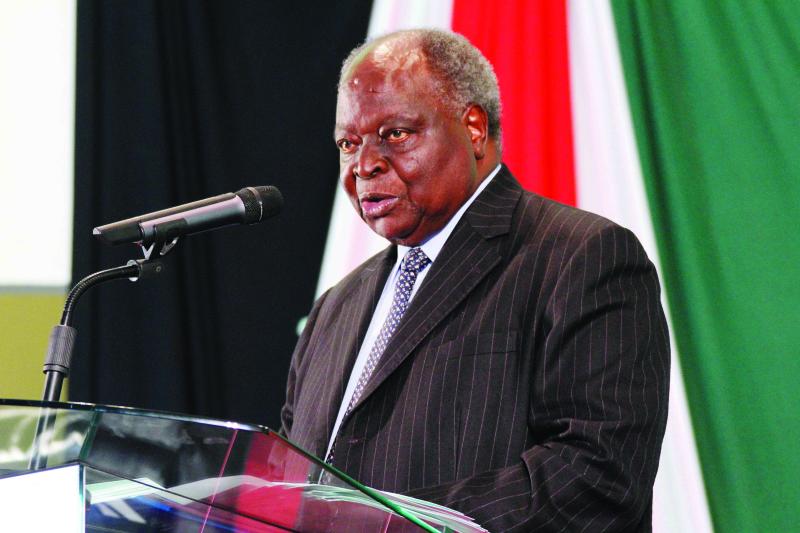Former President Mwai Kibaki gave a public lecture at the University of Nairobi Taifa hall. [Mbugua Kibera, Standard]
×
The Standard e-Paper
Informed Minds Prefer The Standard

Former President Mwai Kibaki gave a public lecture at the University of Nairobi Taifa hall. [Mbugua Kibera, Standard]
It seems appropriate, without any sense of irony, that the nation is enjoying a five-day weekend as the man who championed a working nation lies in state. In case you missed the news, today is a public holiday to mourn Prezzo Mwai Kibaki; Monday is May Day and Tuesday is another public holiday to mark the end of Ramadhan, the holy month for Muslims.